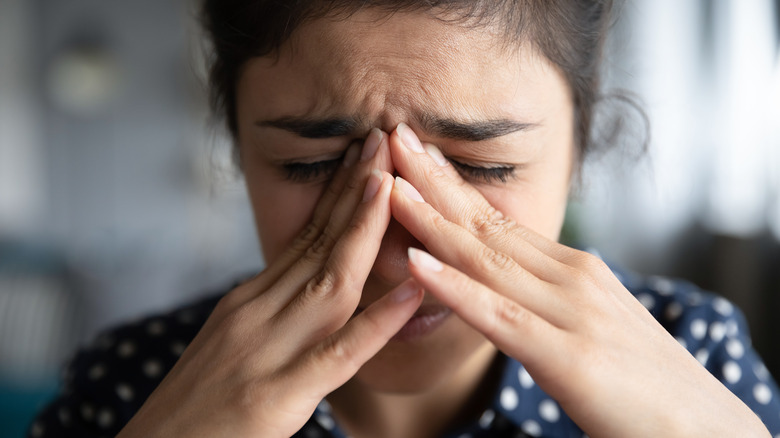What Does It Mean To Have A Chronic Illness?
Chronic illness is something most of us know all too well. In fact, 6 in 10 American adults live with 1 chronic disease, and 4 in 10 live with 2 or more, according to the U.S. Centers for Disease Control and Prevention (CDC). What does it actually mean to live with a chronic illness?
Chronic illness is defined as having a condition that lasts a year or more (via CDC). This kind of illness limits your daily activities, such as going to work or getting dressed, may require continued medical care, or both. There is a multitude of types of chronic disease, but some of the more common types are heart disease, cancer, and diabetes. Chronic illness is the leading cause of death and disability in the U.S., and you may be at greater risk if you use tobacco, have poor nutrition, don't get enough physical activity, or drink alcohol excessively. Since chronic illness can't be cured, it may be incredibly challenging to live with on a daily basis.
Impacts of living with chronic illness
If you've been diagnosed with a chronic illness, it may be shocking and distressing. While you know that other conditions like the flu or a cold will go away in time, chronic illness may never go away and could cause a variety of disruptions to your life (via the Cleveland Clinic). It might become the norm to experience pain and fatigue frequently, even every day. Your physical appearance may change, you might have to miss work, and everyday tasks might take longer to accomplish. Often, mental health challenges and chronic illnesses go hand-in-hand, according to Mental Health America.
It's important to know that you're not alone. Since long-term illness can feel isolating, connecting with others who have similar life experiences can help you learn new ways of dealing with your illness and help you feel less alone (via Cleveland Clinic). If there's a nonprofit organization dedicated to your disease, it may have a database of support groups. A study published in the journal Health Psychology found that in women who were diagnosed with breast cancer, those who sought social support and used coping strategies were more satisfied with their lives 2 years later, compared to those who ignored their diagnoses and refused help. Individual counseling can also be helpful, and some counselors are even trained in coping with chronic illness. Building a strong support network of people who will listen and help you manage your disease is crucial.


